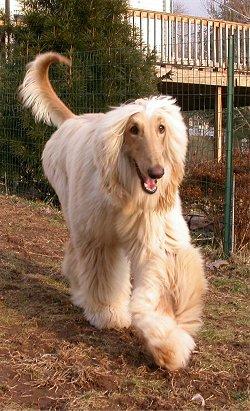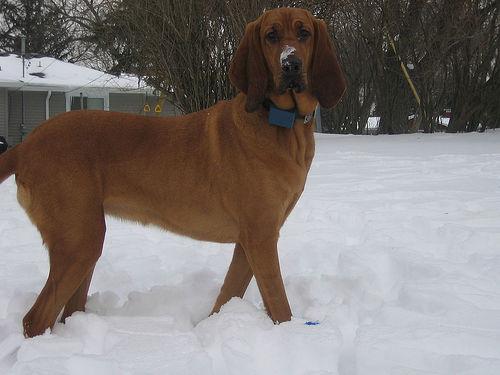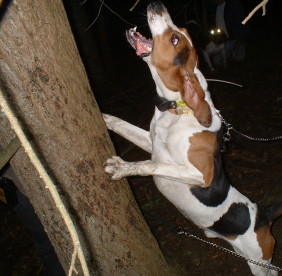About Basset Hound
The Basset Hound, with its soulful eyes, droopy ears, and distinctive gait, is a breed that captures hearts. More than just a charming face, the Basset Hound is a scent hound with a rich history and a unique set of characteristics that make it a beloved companion for the right owner. This comprehensive guide will delve into everything you need to know about the Basset Hound, from its origins to its temperament, health, and care requirements.
History and Origin
The Basset Hound's history is deeply rooted in France, where it originated from the Abbey of Saint Hubert. It is believed that the breed descended from the St. Hubert Hound, also known as the Bloodhound. The word "basset" comes from the French word "bas," meaning "low," which aptly describes the breed's short legs. These low-slung hounds were specifically bred for hunting small game like rabbits and hares, as their short stature allowed them to navigate dense undergrowth effectively. In the 16th century, various basset types were developed, each suited for different terrains and quarry. The modern Basset Hound, as we know it, was further refined in Great Britain in the 19th century, with breeders focusing on specific traits and establishing breed standards. The breed quickly gained popularity in both Europe and North America, where it continues to be cherished as a family pet and hunting companion.
Physical Characteristics
Basset Hounds are easily recognizable by their distinctive appearance. They are classified as a medium-sized breed, although their substantial bone structure and low center of gravity make them feel heavier than they look. Their lifespan typically ranges from 11 to 16 years. They have a short, smooth double coat that is relatively long, providing protection from the elements. Common coat colors include tricolor (black, tan, and white), lemon and white, and other hound colors. The Basset Hound's most notable features are its long, droopy ears, which serve to trap scents and direct them towards the nose, and its loose, wrinkled skin, especially around the face and neck. Their short, powerful legs and large paws enable them to track scents for extended periods. Adult Basset Hounds typically stand between 11 and 15 inches tall at the shoulder and can weigh between 50 and 65 pounds. Their overall appearance exudes a sense of dignity and determination, reflecting their hunting heritage.
Temperament and Personality
Basset Hounds are known for their gentle, laid-back, and affectionate nature. They are generally good with children (5/5), making them excellent family pets. Their patient and tolerant demeanor makes them ideal companions for kids of all ages. While they can be somewhat stubborn and independent, they are also incredibly loyal and devoted to their families. Basset Hounds are pack animals at heart and enjoy being around people. However, their compatibility with other dogs is moderate (2/5). Early socialization is crucial to ensure they get along well with other dogs, as they can sometimes exhibit possessive or territorial behavior. They are scent hounds, and their noses often lead them astray, making them prone to wandering if not properly contained. Basset Hounds have a relatively moderate energy level (3/5). They enjoy leisurely walks and playtime, but they are also content to lounge around the house. While they aren't overly energetic, they still require regular exercise to maintain their physical and mental health.
Training and Exercise Needs
Training a Basset Hound can be a challenging but rewarding experience. They are known for their independent and sometimes stubborn nature, which can make them difficult to train (1/5). Patience, consistency, and positive reinforcement techniques are essential. Food motivation often works well with Basset Hounds, but it's important to avoid overfeeding, as they are prone to weight gain. Early socialization and obedience training are crucial to help them develop into well-behaved companions. Despite their low energy level, Basset Hounds require regular exercise to prevent obesity and maintain their physical health. Daily walks are essential, and they also enjoy activities like scent work and tracking. It is important to keep them on a leash or in a securely fenced area, as their strong sense of smell can lead them to wander off in pursuit of an interesting scent.
Health and Care
Basset Hounds are prone to certain health issues, including bloat, glaucoma, ear infections, and hip and elbow dysplasia. Their long ears make them susceptible to ear infections, so regular cleaning and monitoring are essential. Their deep chest can also make them prone to bloat, a life-threatening condition that requires immediate veterinary attention. Maintaining a healthy weight through proper diet and exercise is crucial to prevent joint problems and other health issues. Basset Hounds have moderate shedding (3/5) and require regular grooming (4/5) to keep their coat in good condition. Weekly brushing helps to remove loose hair and prevent matting. Their wrinkles and folds of skin need to be cleaned regularly to prevent infections. Basset Hounds are also known for their drooling (5/5), which is something prospective owners should be prepared for.
Is This Breed Right for You?
The Basset Hound can be a wonderful companion for the right owner. They are affectionate, gentle, and good with children, making them excellent family pets. However, they also require a patient and understanding owner who is willing to commit to their training and care needs. If you are looking for a low-energy dog who enjoys leisurely walks and cuddling on the couch, the Basset Hound might be a good fit for you. However, if you are looking for a highly trainable and energetic dog, you may want to consider a different breed. Be prepared to deal with their stubbornness, drooling, and potential health issues. With proper care and attention, the Basset Hound can bring years of joy and companionship to your life.
Temperament
Basic Information
- Size Medium
- Life Span 11-16 years
- Coat Type Double
- Coat Length Long
Characteristics
Energy Level
3/5
Trainability
1/5
Good with Children
5/5
Good with Other Dogs
2/5
Shedding
3/5
Grooming Needs
4/5
Drooling
5/5
Comments
No comments yet. Be the first to comment!
Upload a Photo
You must be logged in to upload photos.
Compare Breeds
Compare this breed with another to find the perfect match for you.



